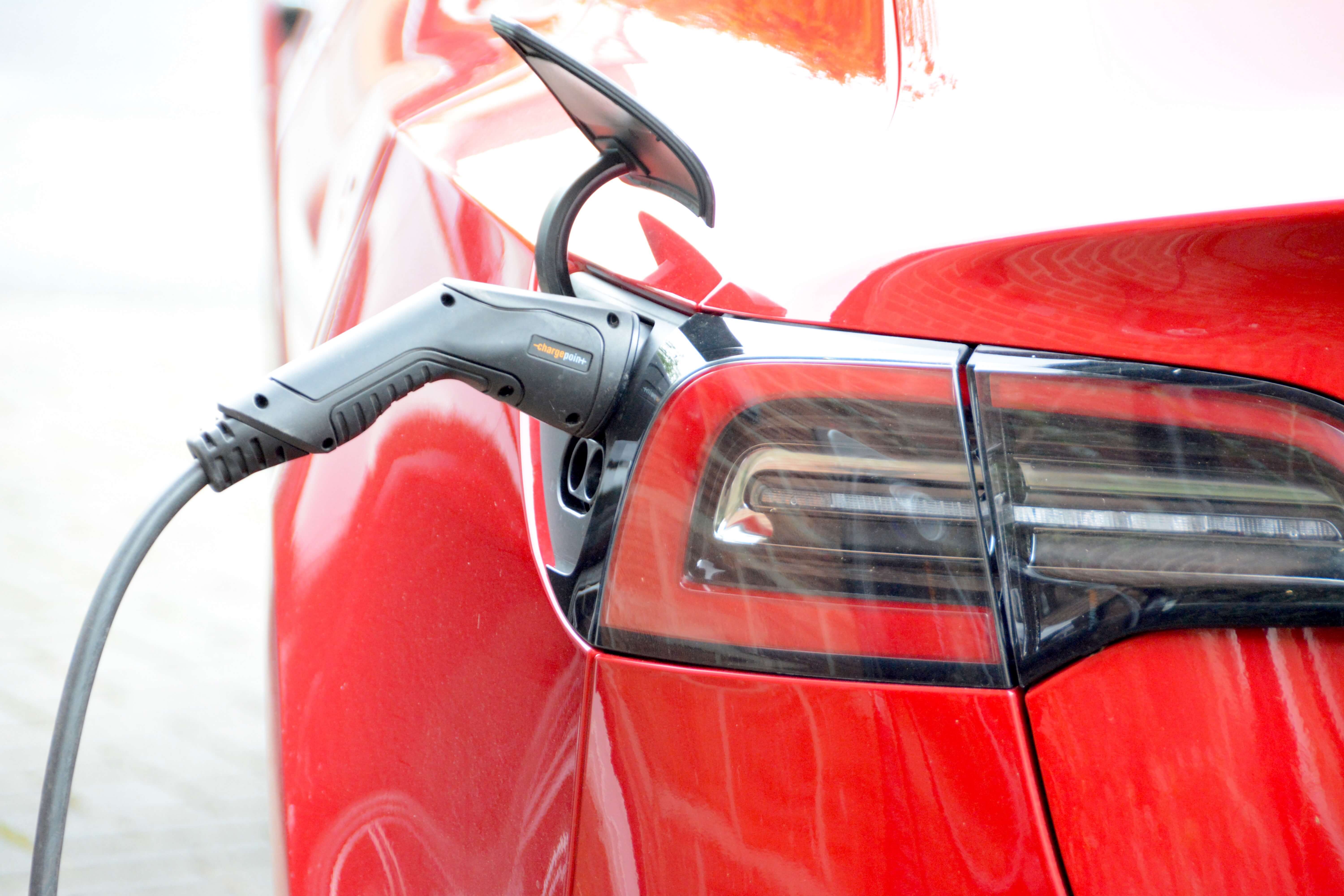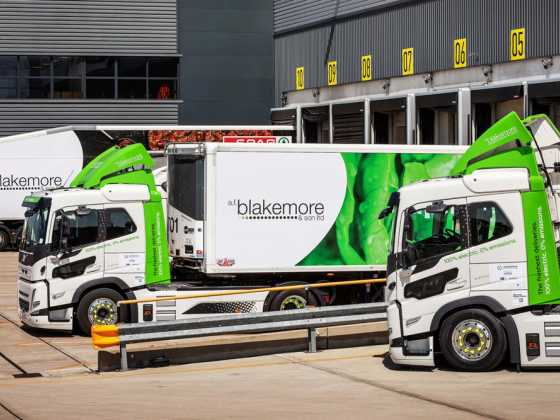Electric vehicles expected to account for a third of the market by 2030

Despite the impact of Covid-19, the electric vehicle market’s collective accomplishments over the past two years signal a pattern of ongoing growth, which is expected to continue over the course of the next decade. Jamie Hamilton, head of electric vehicles at Deloitte, explains further
Before the COVID-19 pandemic shook up the automotive industry, electric vehicles (EVs) were moving steadily into the spotlight. So much so, a milestone was reached in 2019 when the combined annual sales of battery electric vehicles and plug-in hybrid electric vehicles tipped over the two-million-vehicle mark for the first time.
Despite the impact of COVID-19, the EV market’s collective accomplishments over the past two years signal a pattern of ongoing growth, which is expected to continue over the course of the next decade.
In Deloitte’s latest insight report, our global EV forecast is for a compound annual growth rate of 29 per cent achieved over the next ten years. This would see total EV sales growing from 2.5 million in 2020 to 11.2 million in 2025, then reaching 31.1 million by 2030. On this trajectory, EVs would secure approximately 32 per cent of the total market share for annual new car sales by the end of the decade.
The UK will be at the forefront of the electric revolution
In the UK, a mix of favourable government policies and greater consumer awareness on climate change have been catalysts for EV growth to date. With ambitions to meet wider net zero emissions by 2050, and a proposed ban on the sale of polluting vehicles brought forward to 2035, the stage is set for further adoption.
Deloitte’s analysis found that 50 per cent of UK consumers would consider an EV as their next vehicle purchase. However, 33 per cent indicate that a lack of charging infrastructure remains the greatest concern when considering the switch to full electric.
Major investment in infrastructure and overcoming consumer concerns around the availability and accessibility of charging facilities is vital in order for the UK to keep pace with the leading EV regions. However, once the necessary infrastructure is in position, other factors mean that the UK is well placed to see demand shift beyond early adopters, reaching wider segments of the market and potentially surpass the 32 per cent global EV market share by 2030.
Companies have an important role to play
Sales of new cars to businesses represents a significant proportion of all cars sold, standing at 62 per cent of all new cars sold in the UK in 2019. Encouraging uptake within the fleet market will therefore be a key driving force of EV growth in the UK.
We are already seeing many businesses support the transition to electric. Having a clearly defined ‘purpose’ continues to top of the corporate agenda, with an increasing number of companies seeking to differentiate and demonstrate how they can act as a force for positive change. With travel often a major, and very visible, contributor of businesses emissions, more are considering how they can support a shift to electric vehicles. Traditional company car schemes are often seen as one policy ripe for reinvention, with companies finding that there are not only emissions savings, but also cost savings and improved employee satisfaction through the provision of cash and or broader mobility options.
Increasing business commitment to EVs is demonstrated through the numbers signing up to the Climate Group’s EV100 initiative; a public pledge to accelerate the transition to electric. To date, 67 companies from across the world and differing industries have signed up, representing over US$880 billion in revenue and 3.4 million employees.
EVs more attractive due to financial incentives
The reduced environmental impact of EVs make their widespread adoption a necessary step towards achieving the UK’s climate change goals. In addition to pledging to reduce emissions as part of the Paris Agreement, the UK has also committed to a ‘net zero’ target for greenhouse gasses by 2050. To achieve this, emissions from across the transport industry, now the highest emitting sector in the UK, will need to be tackled. Targeting corporate fleets has the potential to displace the maximum amount of fossil-driven miles, making these ‘net-zero’ targets more achievable.
In order to encourage fleet transition to electric, favourable tax rates have been introduced in the UK that make EVs more financially appealing. New company car tax rates that came into effect from April 2020 have seen the lowest rate of company car tax available on electric vehicles reduced from 16 per cent to 0 per cent.
Earlier this year, companies and their employees were given clarity over the length of time that this incentive would be available as the government confirmed that the maximum rate of tax for fully electric cars will be limited to just two per cent in the next five years.
As a result, businesses can currently offer EVs to employees cheaper than petrol or diesel equivalents, resulting in major financial benefits to both the employee and the company, whilst also contributing to the reduction of businesses’ environmental impact.
Based on our calculations, an employee could experience savings of 95 per cent and above over a four-year period by choosing an EV as their next company car instead of a diesel of comparative value. Meanwhile, a company operating a large fleet (of 900 vehicles or more) could benefit from savings in excess of £1.9 million annually by changing the profile of their fleet to electric.
Transitioning your fleet to electric requires careful planning
The tax rates available on EVs offer an opportunity for businesses to achieve their emission and sustainability commitments, whilst also realising considerable monetary savings. Although uptake of the scheme has been slowed by COVID-19, we expect it to be an increasingly attractive option for employers and employees in the future.
There are several factors businesses should consider before making wholesale changes to their employee benefits and mobility schemes. One such consideration is the viability of using EVs if employees are required to travel long distances on a regular basis, with ‘range anxiety’ superseding the cost benefits offered by this scheme. Another is the fact that most businesses, currently, do not yet have the infrastructure in place to support a large switch to EV. Significant improvements will be required to make this viable in many workplaces, including investment in on-site charging points.
From an HR perspective, it is also important to consider whether salary sacrifice for EVs will actually work as an attractive benefit and a way of switching people from older private cars to newer EV company cars. Given the potential level of savings available, businesses should consider the way in which they provide EVs in order to share savings with employees and maximise the potential benefits of any new arrangements.
From a financial perspective, changing the profile of a fleet to electric is appealing. But with the majority of savings currently coming from tax and social security efficiencies, many businesses will need to seek out specialist tax advice to maximise their benefits and ensure they are compliant. Fleet providers will also need to consider the structure of their portfolio in the short to medium term as EV residuals normalise. A large take up of EV could bring added risk to their ability to achieve desired residual values.
Once these, and other factors are taken into account, then businesses can look to develop their longer-term fleet and EV strategy in partnership with experts to ensure that it will be both cost effective and deliver on wider operational, employee and environmental objectives.
Read Deloitte's report here






